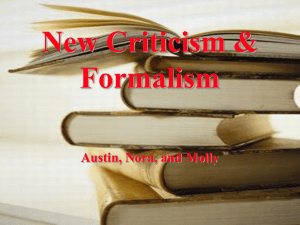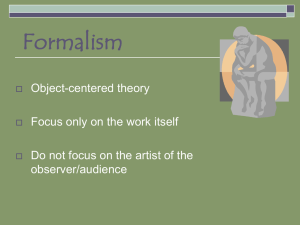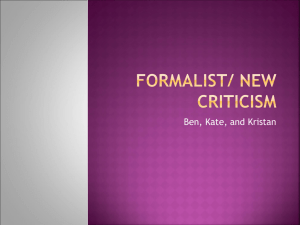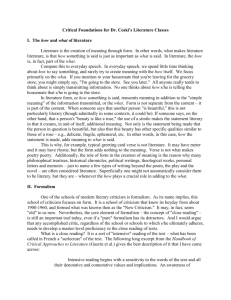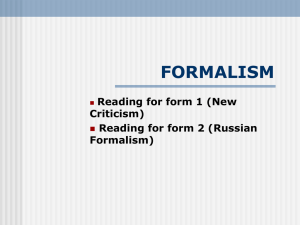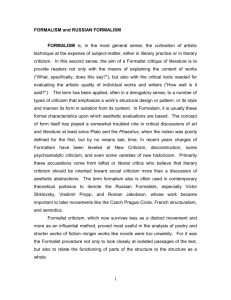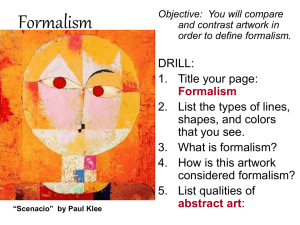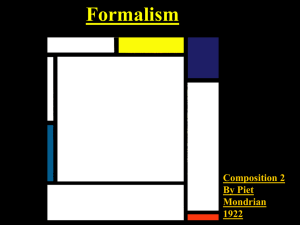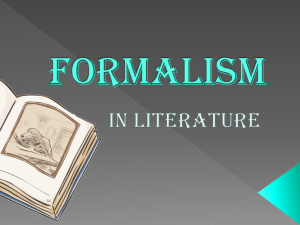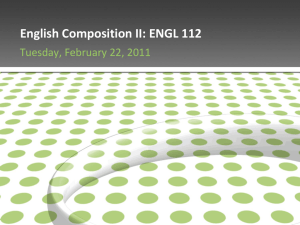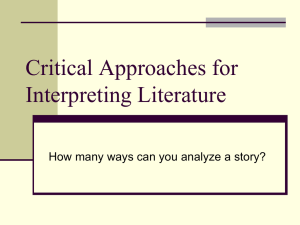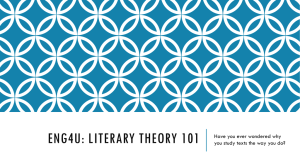Formalist
advertisement
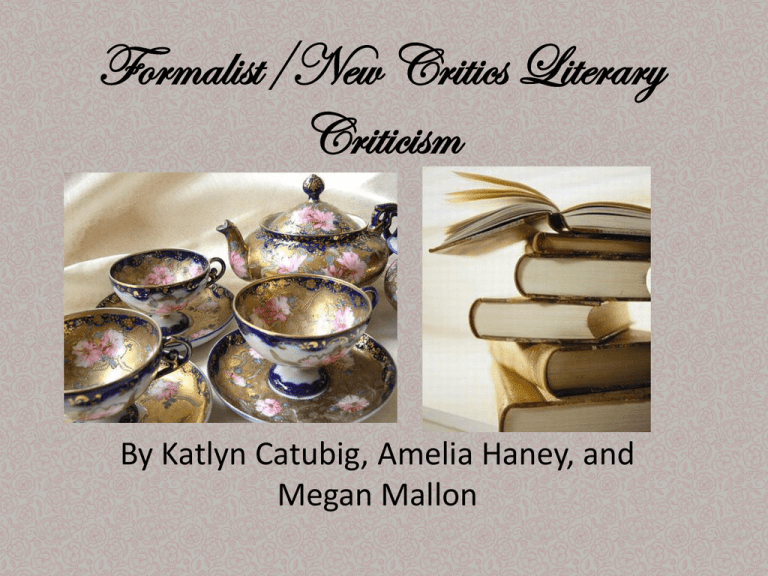
Formalist/New Critics Literary Criticism By Katlyn Catubig, Amelia Haney, and Megan Mallon "The purpose of art is to impart the sensation of things as they are perceived and not as they are known. The technique of art is to make objects 'unfamiliar', to make forms difficult, to increase the difficulty and length of perception, because the process of perception is an aesthetic end in itself and must be prolonged. Art is a way of experiencing the artfulness of an object; the object is not important." - Shklovsky, "Art as Technique", 1917 (in Russian Formalist Criticism: Four Essays, Lemon and Reis, Univ of Nebraska Press, 1965), p.12 What is Formalism/New Criticism? • Emphasis on form over content • Meaning in arts/literature/philosophy • Forces writer to evaluate work originally than to rely on “accepted” meanings • Works best when applied to poetry and short fiction • Attempts to discover meaning by close reading Formalism/New Criticism = FORM -------------------CONTENT • • • • The Focus of Formalism/New Criticism Form, Organization & Structure Word choice and language Multiple meanings Considers work in isolation by disregarding authors intent, historical context, etc • Doesn’t ask who, what, when, where, or why • Asks how Formalism & New Criticism in the Real World • Russian Origin • Early 20th century • Dominance • Formalism in literature – I.A. Richards and William Empson Types of Questions Asked • What is the nationality or era of composition? • How do form and content work together? Advantages/Disadvantages Disadvantages: Advantages: Can be performed without much research Emphasizes value of literature apart from its context (makes it timeless) Virtually all critical approaches must begin here - Text is seen in isolation - Ignores context - Reduces literature to little more than a collection of rhetorical devices How Formalism/ New Criticism has Been Used in Class • A.P. U.S. History – DBQs: (Sometimes disregard biographical/historical context) • History in General (Documentations) - The Constitution - The Declaration of Independence - The Bible How is Formalism/New Criticism Applied? • Reading and writing – Develop new analytical strategies • Explicating fictional work (preferably poetry or short fiction) • Examples: Law, The Constitution, The Bible, etc Bibliography • http://english.ucumberlands.edu/litcritweb/theory/formalism.htm • http://www2.eng.cam.ac.uk/~tpl/texts/quotes.html • http://webcache.googleusercontent.com/search?q=cache:iYN4nqF2 6ZYJ:wwww.ksu.edu.sa/colleges/art/eng/461Eng/Literary%2520Criticism%2520Map.htm+advantages+and+disad vantages+to+new+criticism&cd=1&hl=en&ct=clnk&gl=us • http://english.ucumberlands.edu/litcritweb/theory/formalism.htm • http://mesastate.edu/~blaga/formalism/formx.html
